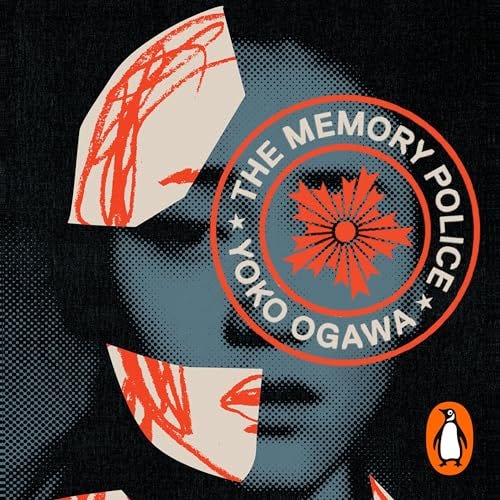Dystopia at the End of History: 'The Memory Police' by Yōko Ogawa (1994)
A review of The Memory Police, by Yoko Ogawa, 1994.
I don’t remember the 90’s. Well, I recall poking a snails eyes, falling down the stairs, and my dad’s dressing gown. But I don’t remember the politics of the time—I was, after all, only 3 during the millennium celebrations. But I did grow up in the cultural afterlife of the 90s and, eventually, lived through its twilight.
The 90’s was the end of history. A time when liberal hegemony was absolute and there were no other visions. Everyone was on the development path and there were only temporary aberrations. I also remember finding this distinctly boring.
You see, my only cultural reference as a child was Lord of the rings and, I don’t know, the Last Samurai (the Tom Cruise one)? Stories of heroic fights between good and evil. Stories of the domination by a malign other, and the asymmetric resistance of the free and true. And these didn’t really apply in the world of the 90s. Because we’d won. So what does the Dystopian imaginary look like when there is no contemporary cultural frame to base it on? Something, I think, like Yoko Ogawas 1994 novel ‘The Memory Police’.
The story follows an unnamed novelist on an unnamed island. In this indeterminate place, things are forgotten. People don’t lose things, but wake up one day and find no psychic space for them. They lose all frame of reference towards it. When flowers are forgotten, they don’t disappear physically, but cease to be understood, admired, and even smelt. People throw them away, because they are forgotten and have no reason to keep them anymore.
Only some people cannot forget. They are, in turn, disappeared by the menacing memory police. A vague but powerful organisation who exist to hunt down the rememberers and their collaborators. The novelist eventually has to hide one such person, her editor R, in a secret compartment in her home.
The plot is a slow, dreamy struggle between the accelerating memory losses and hiding R from the memory police. Why do people forget? Why do the memory police disappear the remembers? And what motivates this nefarious, shadowy organisation?
Well, we never find out. And no characters within seem awfully concerned with these questions either. The answers are never even hinted at.
And as a dystopia it struck me as completely subsumed in ‘the end of history’ millieu it was published in. Because in that context there was no threat to liberal hegemony, and no one believed that the correct functioning of a neoliberal economy could birth its own downfall. And so there was no realistic zeitgeist to draw from for what a dystopia might look like.
The evil of the memory police is therefore completely inexplicable. No one is to blame, no class interests support them, and they have no seeming motivation. It reflects a worldview where the opposition can never have a legitimate grievance or interest against the hegemony, or that antagonist powerbrokers have no one’s interests in mind, and only undifferentiated evil can therefore motivate them. And this worldview has consequences beyond producing mediocre dystopian fiction. You see it in the Democrats response to both of Trumps elections; an incredulity that their ‘objectively correct’ politics was not taken as gospel. And a complete dumbfoundedness that the opposition may have legitimate cause to disagree.
They, like the novelist of the Memory Police, can only perceive their opponents as a vague, nefarious cabal. Something that must be resisted, but because it is seen as an unmoored demiurge they never ask why this evil is the way it is—or what their role in it’s existence may be.
-Ben Shread-Hewitt



This is such an interesting review, Ben. You have unpacked a lot in very few worda here. And i think a lot of people would agree with you about the idea of not understanding something properproperly, hut just knowing that it's evil. I had to read each paragraph a couple of time to get it to properly sink in, but i'm now super keen to read this book. I have The Memory Police on my bedside table and it is next on my list. 😁